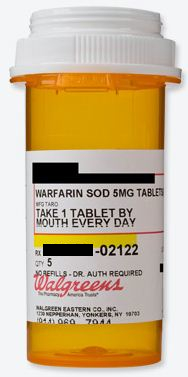 This is the second in a series of blogs looking at adverse effects caused by drinking alcohol while taking prescribed medication. Most of us hear the warning from our doctor and we see the huge warning on the label of the medication. How many people really take that warning seriously?
This is the second in a series of blogs looking at adverse effects caused by drinking alcohol while taking prescribed medication. Most of us hear the warning from our doctor and we see the huge warning on the label of the medication. How many people really take that warning seriously?
As a counselor for both in-class and online alcohol awareness classes I can tell you the vast majority of my students do not heed this warning. Following are some of the medications we take that can be harmful if taken with alcohol. As reported in tribune.com.ng.
Antihistamines, commonly used to treat used allergies and colds can cause drowsiness, sedation and low blood pressure, especially in elderly patients.
Sedatives and tranquilizers and mixing them with booze should be a no-brainer. This includes drugs such as valium, which have sedative-hypnotic effects. They may impair the memory, increase risk of overdose, slow or cause difficulty breathing, liver damage when used with alcohol.
Pain killers, including aspirin, should also be a no-brainer. Alcohol may exacerbate the increased risk of ulcers and gastrointestinal bleeding (particularly in the stomach and intestines) and cause liver damage. It also leads to overdose issues.
Antidepressants cause drowsiness, and so does alcohol. Mixing the two increases their sedative effects, which is dangerous in situations where there is the need to be alert, such as driving, or at work. These can lead to such reactions as rapid heartbeat, sudden changes in blood pressure, dizziness and fainting.
Blood clot medications are extremely dangerous to mix with booze. Occasional drinking may lead to internal bleeding; heavier drinking also may cause bleeding or may have the opposite effect, resulting in possible blood clots, strokes, or heart attacks. in persons taken blood clot medications.
High blood pressure medications, mixed with alcohol can possibly lead to dizziness, fainting, drowsiness; heart problems such as changes in the heart’s regular heartbeat (arrhythmia) when combined with alcohol. When the blood pressure goes down below the normal (hypo-tension), it is deadly.
Alcohol should never be consumed by diabetics, therefore it is no surprise that combining booze with diabetes medication is a terrible idea. Alcohol consumption affects the availability of medications used in lowering blood sugar. It also interacts with some drugs of this class to produce symptoms of nausea and headache.
Narcotic pain relievers combined with booze can be lethal. The combination of opiates and alcohol enhances the sedative effect of both substances, increasing the risk of death from overdose.
I encourage you to not only listen to your doctor’s advice but take both an online alcohol class and online drug class to learn more about the way alcohol affects the body when combined with prescription medication.
